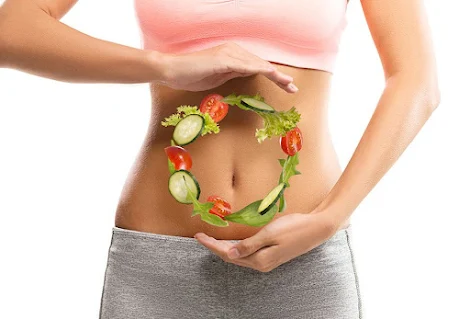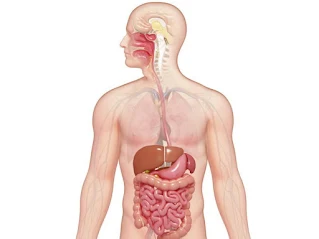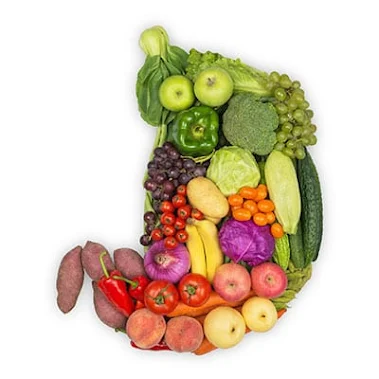Your intestinal system...that strange 30-foot long pipe holds more alternative cures than most of us could ever think of. Rather than supporting it, most of us nourish our taste buds before thinking about how it impacts our digestive health. It's true, isn't it? Many people obtain their health knowledge from the media, which also inundate our minds with advertisements that ignite our desires and cravings. It's no wonder that we forget (or avoid) the connection between the quality of our food and the quality of our intestinal health.
READ MORE: Is Becoming Vegan Hard to Stomach?
While it seems like a simple system, your intestinal tract if very sophisticated and termed by some as the second brain. That 30-foot pipe which makes up your intestinal system is accountable for delivering the ingredients of what you eat into your body. It is also needed for proper immune function and acts as a surveillance system to prevent entry of unwanted harmful molecules and microbes.
So this pipe needs to be in good condition. When the digestive system is not functioning properly, your health will deteriorate. Symptoms like gas, bowel problems, heartburn, diarrhea, stomach ache, irritable bowel syndrome (IBS), fatigue, weight gain, asthma, eczema, and food allergies should cue you in to the fact that you need help and in this article we will show you how to improve the digestion of food.
How to Improve Digestion of Food
If left unattended, these symptoms can lead to chronic health issues. Here are some tips on how to improve digestion of food and live a healthy lifestyle:
1. Chew your food. Digestion starts in your mouth with both the mechanical action of your jaw and the saliva that mixes with the food. You can drastically improve your digestion by chewing your food more thoroughly. In fact, many people feel they need to take digestive enzymes to help the digestion of food but before doing, consider a more deliberate approach to eating. Try to count how many times you chew your food before you swallow. Try chewing about 25-30 chews. Become conscious of the movement of your tongue and swallowing reflex. When you chew the food thoroughly, it eases the work required from the other parts of your digestive tract, and thus improving digestion.
READ MORE:Healthy Habits to Relieve Constipation
2. Eat real food. Focus on whole fresh fruits and veggies and stay away from fake stuff. Most people know that fast foods and many prepared are unhealthy because that are generally high in processed oils, sugar, sodium, preservatives and other chemicals. Also, they're difficult for your body to process, don't provide very little health value, and can damage the intestinal lining.
3. Eat fermented foods. Fermented foods contain "good bacteria" and consuming them will help you to replenish and nourish your gut flora. Fermented foods are things like kombucha, kimchi, fermented vegetables, kefir, yogurt and sauerkraut. While you have to ferment milk to make yogurt not all yogurts have live cultures in them. The same can be said for all the fermented foods. Live culture fermented foods do have good bacteria and are a great way to improve the digestion of food because the microbes assist in food breakdown. In fact a health array of fibers keep the overall bacterial ecology in your digestive tract healthy and happy. When fiber is low in your diet, the bacteria will have more trouble surviving as this is the fuel they use to survive. If you are currently consuming very little fiber and fermented foods, go slowly as you increase. Allow time for your digestive system to adjust to and become stronger and healthier.
4. Detox your system.
Your liver and gall bladder play an integral role in digestion of the food you eat. Good bile flow is needed to digest and absorb fats. When the liver is burdened with excessive toxins the flow and production of bile can be reduced leading to decreased fat absorption. Step one is to reduce the known toxins like alcohol and acetaminophen. Another thing you can do to improve digestion of food is try to increase your consumption of liver-loving foods such as dark leafy greens, beet root, carrots, beet and dandelion greens. Dandelion root tea can also be helpful. (Simple Detoxification Method That Removes Toxins)
5. Get hydrated. Many people with intestinal complaints are simply dehydrated. This is often the case with constipation. Does everyone need the same amount of water? No they don't. Generally speaking about 0.5-0.9 oz of water or herbal tea (non-caffeinated tea) per pound of body weight. So if you are not doing much exercise and weigh 150 lbs about 75 oz will probably be sufficient but you may do better with 90 or even 100. Anyone that sweats a lot will need to be on the upper range. Based on these parameters, look at your water consumption consider if this contributing to your digestive problems. Try to increase your drinking habits today! Herbal teas are also known to moisturize and heal the body. Fenugreek, ginger, fennel and peppermint are known for their intestinal supporting properties.
ALSO: How Much Water Should You Drink Per Day?
6. Manage stress. Stress doesn't just ruin your mind, it can have a negative impact on your digestion too! Your digestion works whether you are thinking about it or not. You put food in and things just start happening. However, when there is a lot of stress, digestion cannot work efficiently. Stress actually can override and negate your subconscious digestive processes. Reducing your stress is easier said than done but here are some suggestions.
Discover what kinds of actions or activities work to reduce your stress such as: taking a nap, walking, yoga, making lists, talking to a friend, mindful breathing and meditation. All these help to reduce stress and improve the digestion of food.
7. Juice fasting. Taking a break from solid foods can help improve the digestion of food by giving it a chance to rebuild and repair damaged areas. Blended foods and juices require much less effort from the digestive tract to get the nutrients out. Don't over do this though, 1-3 days is plenty of time to do this without medical supervision. (72 Amazing Carrot Juice Benefits Based on Its Nutrition)
8. Assist your body system with Glutamine. When inflammation is present in the intestine it will limit the ability of your intestines to absorb foods properly. Glutamine is an amino acid that is an essential fuel for the cells of your small intestine. Giving these cells extra fuel can help with their repair when damage is present from inflammation. Cabbage is high in glutamine and can be fermented into Sauerkraut. for a double way to improve digestion. Glutamine can be found in supplements and in other foods.
9. Get probiotics. Probiotics are the good bacteria that improve digestion and gut health. There are more bacteria in your digestive tract than there are cells in your body. Most of these bacteria are in your colon or large intestine. These good bacteria assist in food breakdown and make vitamins and other nutrients your body needs. Many things can limit or reduce there numbers but you could take probiotics to boost up your numbers. Numerous studies have been done to help isolate and identify which microbes are best to improve digestion of food and general digestion.
10. Pay attention to your body. Forget diet fads and trends, develop and internal compass and understanding of how your body works. Keep a food journal and try to pinpoint which foods are creating, contributing, or worsening your symptoms. Having this knowledge puts you in control of your health, so you can make healthy choices that suit you.
If you're having digestive health problems, look at this as simply a signal that your body is trying to tell you something. Pay attention to these cues and use these 10 tips to re-balance your digestive system and improve digestion.
SOURCE:swintegrativemedicine.com
RELATED: 10 Tips to Improve Gut Health Naturally












